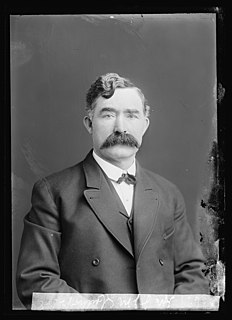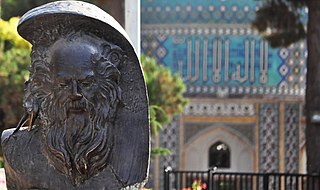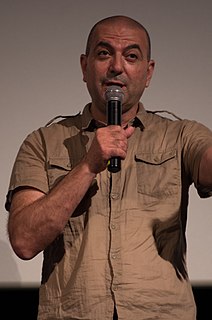A Quote by William Faulkner
A man or a race either if he's any good can survive his past without even needing to escape from it and not because of the high quite often only too rhetorical rhetoric of humanity but for the simple indubitable practical reason of his future: that capacity to survive and absorb and endure and still be steadfast.
Related Quotes
If the black man is feeble and not important to the existing races, not on a parity with the best race, the black man must serve,and be exterminated. But if the black man carries in his bosom an indispensable element of a new and coming civilization; for the sake of that element, no wrong nor strength nor circumstance can hurt him: he will survive and play his part. So now, the arrival in the world of such men as Toussaint, and the Haytian heroes, or of the leaders of their race in Barbadoes and Jamaica, outweighs in good omen all the English and American humanity.
A thousand for his love expired each day, And those who saw his face, in blank dismay Would rave and grieve and mourn their lives away- To die for love of that bewitching sight Was worth a hundred lives without his light. None could survive his absence patiently, None could endure this king's proximity- How strange it was that man could neither brook The presence nor the absence of his look!
Many people correctly make the point that our only hope is to turn to God. For example, Charles Lindbergh, who said that in his young manhood he thought "science was more important than either man or God," and that "without a highly developed science modern man lacks the power to survive," . . . went to Germany after the war to see what Allied bombing had done to the Germans, who had been leaders in science. There, he says, "I learned that if his civilization is to continue, modern man must direct the material power of his science by the spiritual truths of his God."
There were profound reasons for his attachment to the sea: he loved it because as a hardworking artist he needed rest, needed to escape from the demanding complexity of phenomena and lie hidden on the bosom of the simple and tremendous; because of a forbidden longing deep within him that ran quite contrary to his life's task and was for that very reason seductive, a longing for the unarticulated and immeasurable, for eternity, for nothingness. To rest in the arms of perfection is the desire of any man intent upon creating excellence; and is not nothingness a form of perfection?
It is dangerous to explain too clearly to man how like he is to the animals without pointing out his greatness. It is also dangerous to make too much of his greatness without his vileness. It is still more dangerous to leave him in ignorance of both, but it is most valuable to represent both to him. Man must not be allowed to believe that he is equal either to animals or to angels, nor to be unaware of either, but he must know both.
It's shocking to me still, that children - just because of where they're born - are born into a life of extreme poverty and hunger. Humans, we can survive without a lot of luxuries we are lucky to live with. But the thing we need most is healthy food and clean water. Without that we can't survive and we can't thrive.
The absurd man will not commit suicide; he wants to live, without relinquishing any of his certainty, without a future, without hope, without illusions … and without resignation either. He stares at death with passionate attention and this fascination liberates him. He experiences the “divine irresponsibility” of the condemned man.



































